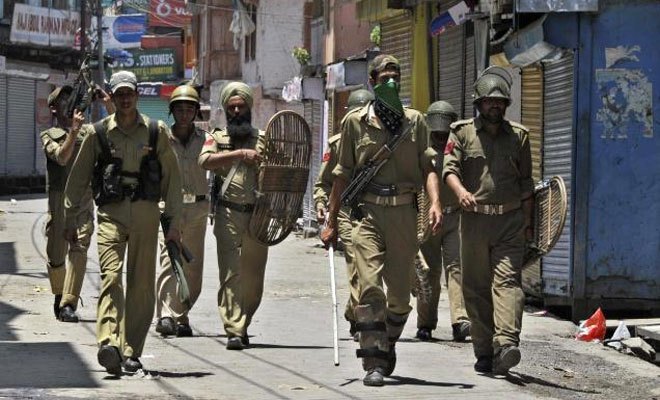Centre notifies functions of the Lt. Governor and the UT’s Council of Ministers.
Jammu and Kashmir Lieutenant Governor Manoj Sinha | File Photo | Photo Credit: PTI
The Ministry of Home Affairs (MHA) on Friday notified new rules for administration in the Union Territory of Jammu and Kashmir that specify the functions of the Lieutenant Governor (LG) and the Council of Ministers.
According to the transaction of business rules, “police, public order, All India Services and anti-corruption,” will fall under the executive functions of the LG, implying that the Chief Minister or the Council of Ministers will have no say in their functioning.
The rules notified by Home Secretary Ajay Kumar Bhalla say that proposals or matters which affect or are likely to affect the peace and tranquility of the UT or the interest of any minority community, the Scheduled Castes, the Scheduled Tribes and the Backward Classes “shall essentially be submitted to the Lieutenant Governor through the Chief Secretary, under intimation to the Chief Minister, before issuing any orders.”
The Council of Ministers, led by the Chief Minister will decide service matters of non-All India Services officers, proposal to impose new tax, land revenue, sale grant or lease of government property, reconstituting departments or offices and draft legislations.
Difference of opinion
However, in case of difference of opinion between the LG and a Minister when no agreement could be reached even after a month, the “decision of the Lieutenant Governor shall be deemed to have been accepted by the Council of Ministers,” the rules note.
On August 6, 2019, Parliament read down Article 370 of the Constitution revoking the special status of J&K and bifurcated and downgraded the State into Union Territories of J&K and Ladakh; J&K with a legislative assembly. The erstwhile State has been Central rule since June 2018 and the elected Assembly was dissolved in November the same year. J&K has been without a chief minister since June 2018. According to requirements of the J&K Reorganisation Act, 2019, fresh elections will be held after the delimitation exercise is completed next year.
The rules state that “any matter which is likely to bring the Government of the Union territory into controversy with the Central Government or with any State Government”, shall, as soon as possible, be brought to the notice of the LG and the Chief Minister by the secretary concerned through the Chief Secretary.
39 departments
As per the rules, there will be 39 departments in the UT such as school education, agriculture,higher education, horticulture, election, general administration, home, mining, power, Public Works Department, tribal affairs and transport.
Union Home Minister Amit Shah, while introducing the legislations in Parliament last year, said J&K’s Statehood would be restored soon.
The rules say all communications received from the Centre, including those from the Prime Minister and other Ministers, other than those of a routine or unimportant character, shall, as soon as possible after their receipt, be submitted by the secretary to the Chief Secretary, the Minister in charge, the Chief Minister and the LG for information.
“Any matter, which is likely to bring the government of the Union Territory into a controversy with the Centre or a State government, shall, as soon as possible, be brought to the notice of the LG and the Chief Minister by the secretary concerned through the Chief Secretary,” they add.
With inputs from The Hindu

